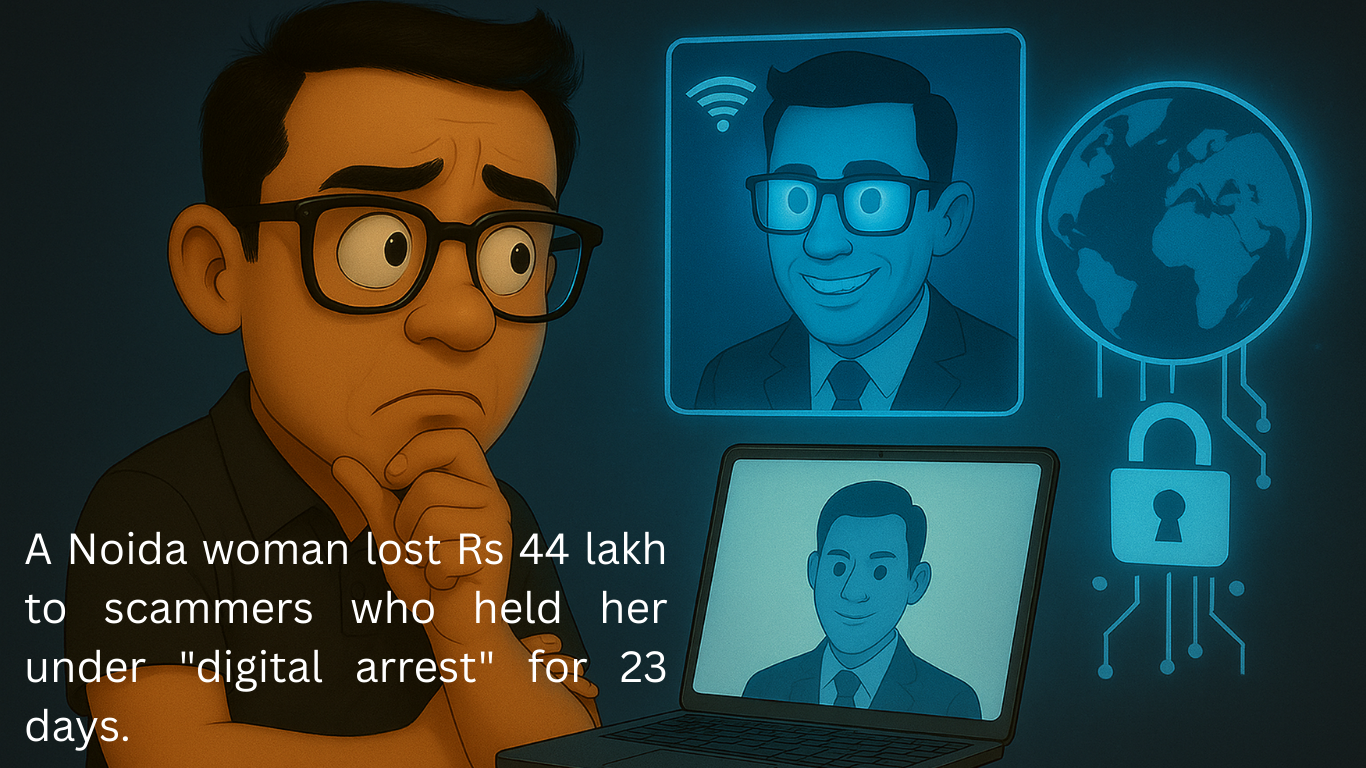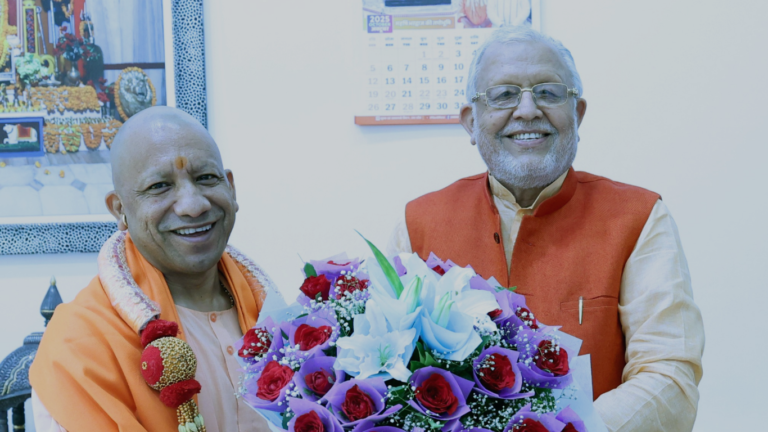
Noida, September 3, 2025 – In a chilling example of how cyber crooks are getting bolder, a 76-year-old woman in Noida fell victim to a clever scam that kept her virtually locked up for over three weeks. Sarla Devi, living alone in Sector 41, lost Rs 44 lakh after fraudsters scared her with fake links to terror funding in the deadly Pahalgam attack earlier this year. Police have now stepped in, but the case shows just how scary these “digital arrest” tricks have become, preying on fear and trust.
It all kicked off on July 18 when Sarla got a call from someone claiming to be Neha from Airtel. The caller said her mobile number was tied to shady stuff like gambling and blackmail at a Mumbai shop in Byculla. Worried, Sarla listened as the call got handed over to a man posing as a top cop from Mumbai’s Crime Branch. He even showed up in uniform on a WhatsApp video call to make it look real. That’s when the nightmare really started.
The fake officer spun a wild story: Four bank accounts in her name were supposedly used for drug deals, hawala money transfers, online betting, and worst of all, funding terrorists behind the April 22 Pahalgam attack in Jammu and Kashmir. That attack, which killed 26 people including tourists near the scenic town, shook the nation and even drew global outrage from leaders like Putin and von der Leyen. He claimed an arrest warrant was out for her, and to “clear” her name, she had to stay under “digital arrest” – meaning no leaving the house, constant video calls for monitoring, and handing over money for “verification.”
From July 20 to August 13, that’s 23 long days, Sarla was stuck in her home, cut off from family and friends. The scammers kept the pressure on, making her transfer cash in eight chunks through online banking. They even pushed her to take out loans to send more. By the end, Rs 44 lakh was gone, her life savings wiped out. “I was terrified they’d come for me,” Sarla later told police, still shaken.
Once she realized it was all a lie, Sarla filed a complaint. Noida cops acted fast, registering an FIR at Sector 24 police station under cheating and cyber fraud laws. They’re now tracking the bank accounts where the money landed, with early leads pointing to a gang possibly based in Cambodia. This isn’t the first time – similar scams have hit others, like a retired banker in Bareilly who was digitally trapped for 42 hours over the same Pahalgam terror claims, nearly losing Rs 70 lakh before cops stopped it.
Digital arrests are on the rise across India, where crooks impersonate officials from police, CBI, or even ED to bully people into paying up. They use real events like the Pahalgam tragedy, where gunmen opened fire on tourists, sparking a massive hunt and even UN condemnation, to make their lies sound true. In that attack, India later claimed to have taken out the suspects, but tensions with Pakistan flared up too. Scammers twist these headlines to scare elders, who often live alone and aren’t tech-savvy.
Police are warning everyone – No real agency does “digital arrests” or asks for money over calls. “Hang up and report it,” says Noida SSP Ajay Kumar. “Verify with local stations if something feels off.” Cyber cells are ramping up awareness drives, especially for seniors, to spot red flags like urgent threats or video calls from “uniformed” strangers.
Sarla’s story is a wake-up call. As probes continue, her family hopes for justice and recovery of the funds. But for now, it’s a reminder, in a world of easy tech, trust your gut and double-check before you click send.



